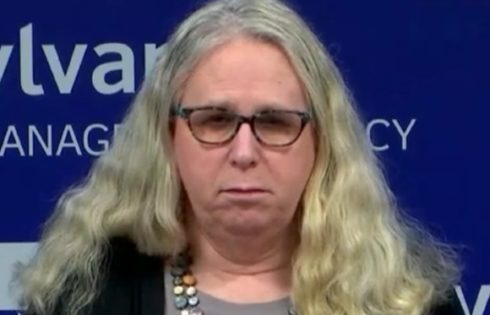
Committee will investigate if ‘fossil fuel industry’ research should receive ‘special scrutiny’
Columbia University has a new committee to investigate oil and gas industry funded research.
However, committee leaders would not answer questions from The College Fix about its implementation. Academic freedom groups were largely silent when asked about potential issues from restricting the funding of certain types of research.
“This new committee will evaluate the ramifications of accepting fossil fuel industry funding for our research and related activities,” then-President Minouche Shafik stated in a university news release. “Given the reality of a rapidly changing climate and our many efforts to confront the climate crisis, it’s important for Columbia to pursue effective policies that ensure the credibility and success of our research activities.”
The report is due next fall.
“Concerns about the potential undue influence of the fossil fuel industry on academic research have been reported in the press and in scholarly publications,” the university announced. “Columbia’s conflict of interest policies address these concerns to some degree, but they do not answer the question of whether funding from fossil fuel companies should receive special scrutiny.”
The committee will investigate questions including “Going forward, should Columbia receive support from fossil fuel companies for its research and research-related activities?” and “What criteria should be used to assess fossil fuel funding opportunities as they arise, and whether they should or should not be accepted by the University?”
None of the committee members contacted for comment provided answers to questions about protecting academic freedom. The Fix also asked if the committee would examine other corporate funding sources, such as donations from renewable energy companies.
Professor David Goldberg redirected questions to committee chairs Sarah Cole and Keren Bergman. Both did not respond to two emails sent in the past several weeks.
Academic reform group urges transparency, but not bans
Heterodox Academy cautioned about restrictions on funding.
“[O]utright bans on fossil-fuel funded research could violate academic freedom, but institutions should have guidelines on all research funding that are transparent and ensure the integrity and independence of research findings,” Director of Policy Joseph Cohn told The Fix via email. “[R]esearch related to fossil fuels is no exception and we look forward to reviewing the Columbia University committee’s guidelines.”
The Foundation for Individual Rights and Expression provided several comments.
“We can’t comment on this specific question regarding Columbia’s Committee on Research Funding from Fossil Fuel Companies because it’s slightly outside our mission of defending student and faculty rights,” FIRE Fellow Graham Piro told The Fix. “However, if there’s evidence suggesting a faculty member’s research was improperly or disproportionately targeted, we would certainly be concerned.
The comment is similar to what FIRE told The Fix about a similar Stanford University proposal to prohibit oil and gas funding in early 2023.
However, FIRE subsequently told The Fix it has concerns about research funding bans. “Faculty should have full freedom in their teaching and research,” Director of Campus Rights Advocacy Alex Morey told The Fix via email in April 2023. “Bans on research funding can inhibit research itself and make it less likely academics will engage with those topics. Whether professors want to study DEI or oil and gas, university administrators must not interfere with those choices.”
Asked for clarification on the contradictory messages, Piro said FIRE is “concerned” about funding bans “targeting specific viewpoints.
“Any time academic freedom is implicated by bans on research funding, such as through bans targeting specific viewpoints, we would be concerned,” Piro told The Fix. “At the same time, universities also retain broad authority to allocate research funding. We’ll be watching for any indication that a specific faculty member’s research is being disproportionately targeted in a viewpoint-discriminatory manner.”
Some academic freedom groups did not respond to requests for comment.
PEN America’s media team did not respond to two emailed requests for comment on academic freedom concerns. The free speech group has previously defended a professor who said it would be better to kill “transphobes” than “shout them down.”
The Academic Freedom Alliance also did not respond to two emailed requests for comment.
American Association of University Professors spokesperson Kelly Benjamin did not respond to two emailed requests for comment. However, the national faculty union has previously pointed The Fix to its guide on research funding.
The group generally favors disclosure over research funding bans.
MORE: University offers workshop on healing with ‘Black archival practice’
IMAGE: Wachiwit/Shutterstock
Like The College Fix on Facebook / Follow us on Twitter






Please join the conversation about our stories on Facebook, Twitter, Instagram, Reddit, MeWe, Rumble, Gab, Minds and Gettr.